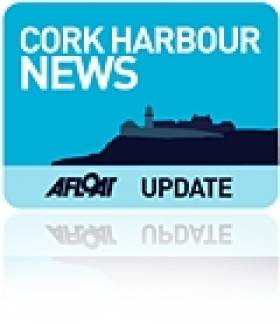Displaying items by tag: 2010 Cobh to Blackrock Race
Cobh to Blackrock Race was Scorching Success
The racing was started from the beautiful Ketch Soubrette from the Naval Service Yacht Squadron Cove S.C. First off were the slow dinghies and the white sail and classic yachts and these presented no problem to the Race Officer. However, when it came to the turn of the cruisers, with a strong flood tide they charged the line, and a general recall ensued. The Race Officer then proceeded to start the J80s before having another attempt at the cruisers Zero to Class Four. This time a Z flag was flown and anyone over the line in the final minute would have a 20% penalty applied. Happily, all went well on this occasion with a clean start and although the breeze was light and flukey all boats managed to make the finish at Blackrock Castle before the time limit. The finishing boat was a former Aran Class Lifeboat, the Samuel J and the first boat to reach the line was Jim Sheerin of Royal Cork Yacht Club in his Catamaran, narrowly beating Eddie English in the Holy Grounder from Sail Cork. In days gone by Eddie used always be first to the finish line in his yellow Hobie. Happy memories!
The event played a big part in the Port of Cork Open Day and for the first time the race had the benefit of the Port of Cork City Marina. When the boats had completed the race at Blackrock Castle they proceeded right up to the city for the prize giving and other festivities planned. All the local towns and villages in and around Cork had events planned for the Open Day and what a difference to last year when the event was completely washed out.
What a coup for Cove Sailing Club with the wonderful reinvigoration of this much loved event. One of the nice things about this is that young children were to be seen sailing with their parents and being given the opportunity to helm all types of craft from Catamarans to Cruisers. It was that kind of event and a wonderful way to get youngsters interested in sailing and fostering a love of the sport.
Photos of the event on the Afloat Gallery HERE





























































